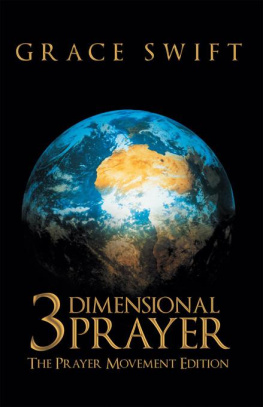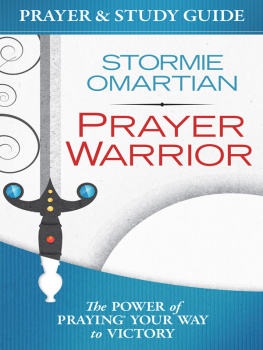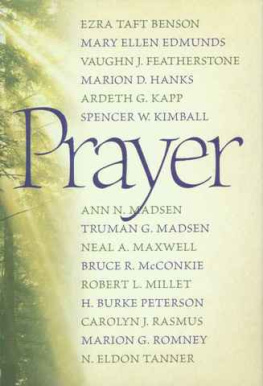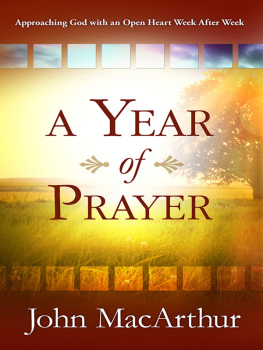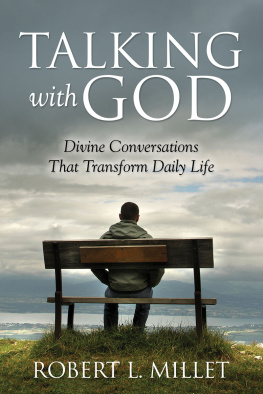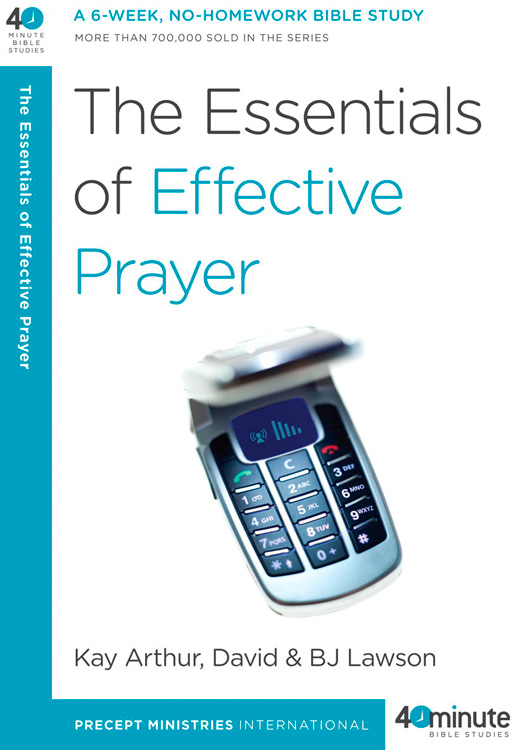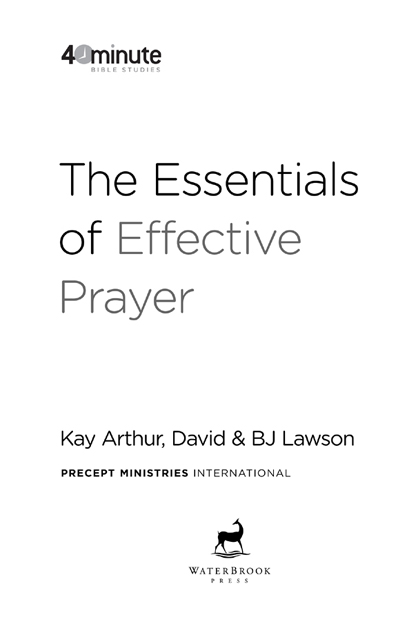T HE E SSENTIALS OF E FFECTIVE P RAYER
P UBLISHED BY W ATER B ROOK P RESS
12265 Oracle Boulevard, Suite 200
Colorado Springs, Colorado 80921
All Scripture quotations are taken from the New American Standard Bible. Copyright The Lockman Foundation 1960, 1962, 1963, 1968, 1971, 1972, 1973, 1975, 1977, 1995. Used by permission. (www.Lockman.org).
eISBN 978-0-307-49933-2
Copyright 2007 by Precept Ministries International
All rights reserved. No part of this book may be reproduced or transmitted in any form or by any means, electronic or mechanical, including photocopying and recording, or by any information storage and retrieval system, without permission in writing from the publisher.
Published in the United States by WaterBrook Multnomah, an imprint of the Crown Publishing Group, a division of Random House Inc., New York.
W ATER B ROOK and its deer colophon are registered trademarks of Random House Inc.
v3.1_r1
Contents
This small-group study is for people who are interested in learning for themselves more about what the Bible says on various subjects, but who have only limited time to meet together. Its ideal, for example, for a lunch group at work, an early morning mens group, a young mothers group meeting in a home, a Sunday-school class, or even family devotions. (Its also ideal for small groups that typically have longer meeting timessuch as evening groups or Saturday morning groupsbut want to devote only a portion of their time together to actual study, while reserving the rest for prayer, fellowship, or other activities.)
This book is designed so that all the groups participants will complete each lessons study activities at the same time. Discussing your insights drawn from what God says about the subject reveals exciting, life-impacting truths.
Although its a group study, youll need a facilitator to lead the study and keep the discussion moving. (This persons function is not that of a lecturer or teacher. However, when this book is used in a Sunday-school class or similar setting, the teacher should feel free to lead more directly and to bring in other insights in addition to those provided in each weeks lesson.)
If you are your groups facilitator, the leader, here are some helpful points for making your job easier:
- Go through the lesson and mark the text before you lead the group. This will give you increased familiarity with the material and will enable you to facilitate the group with greater ease. It may be easier for you to lead the group through the instructions for marking if you, as a leader, choose a specific color for each symbol you mark.
- As you lead the group, start at the beginning of the text and simply read it aloud in the order it appears in the lesson, including the insight boxes, which appear throughout. Work through the lesson together, observing and discussing what you learn. As you read the Scripture verses, have the group say aloud the word they are marking in the text.
- The discussion questions are there simply to help you cover the material. As the class moves into the discussion, many times you will find that they will cover the questions on their own. Remember, the discussion questions are there to guide the group through the topic, not to squelch discussion.
- Remember how important it is for people to verbalize their answers and discoveries. This greatly strengthens their personal understanding of each weeks lesson. Try to ensure that everyone has plenty of opportunity to contribute to each weeks discussions.
- Keep the discussion moving. This may mean spending more time on some parts of the study than on others. If necessary, you should feel free to spread out a lesson over more than one session. However, remember that you dont want to slow the pace too much. Its much better to leave everyone wanting more than to have people dropping out because of declining interest.
- If the validity or accuracy of some of the answers seems questionable, you can gently and cheerfully remind the group to stay focused on the truth of the Scriptures. Your object is to learn what the Bible says, not to engage in human philosophy. Simply stick with the Scriptures and give God the opportunity to speak. His Word is truth (John 17:17)!
THE ESSENTIALS
OF EFFECTIVE
PRAYER
D o you pray?
Really, do you pray? How often? How effective do your prayers seem to be?
Do you question whether your prayer life is all it should be? Do you ever wonder if God still answers when people pray? Do you worry that you dont truly understand what prayer really is?
If youve asked yourself these questions, you are not alone. Almost all of us have questioned at some time what prayer really is and howor ifit really works.
In this study we will discover the answers to these questions as we examine what Scripture teaches about prayer and consider how to apply those truths to our own lives.
For the next six weeks we will learn how to bring our will in line with the will of God. We hope that by the end of this study your prayer life will be more exciting and vibrant than ever before.
A. W. Tozer, The Price of Neglect, comp. Harry Verploegh (Camp Hill, PA: Christian Publications, 1991), 5152.
We know prayer has to do with communicating with God, but what exactly does that look like? Whats the point of praying? Does a sovereign God really care about our concerns? And if He does, how should we approach Him? What sort of things do we ask for or talk to Him about?
This week well try to understand the nature and purpose of prayer by examining some people of prayer and references to prayer in the Bible.
OBSERVE
James, the brother of Jesus, in his New Testament letter mentioned one of the great men of prayer from the Old Testament: Elijah.
Leader:Read James 5:16b18.
Have the group say aloud and mark the words prayer and prayed with aP.
As you read the text, its helpful to have the group say the key words aloud as they mark them. This way everyone will be sure they are marking every occurrence of the word, including any synonymous words or phrases. Do this throughout the study.
J AMES 5:16 B 18
The effective prayer of a righteous man can accomplish much.
Elijah was a man with a nature like ours, and he prayed earnestly that it would not rain, and it did not rain on the earth for three years and six months.
Then he prayed again, and the sky poured rain and the earth produced its fruit.
DISCUSS
What did you learn from marking the references to prayer in this passage?
Have you ever had an experience like Elijahs? Do you feel that your prayers accomplish much? Explain your answer.
Elijah was a man like us, but his prayer life was unlike most of ours. It is a little intimidating, isnt it? Over the next six weeks we will see what it takes to transform our prayer life into one like Elijahs.








